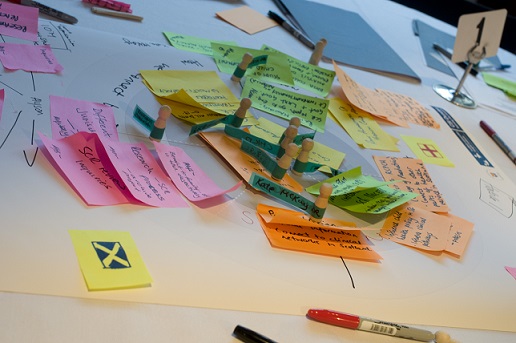 Each year in the UK around 260 children die or are seriously harmed and £5 million is spent "learning the lessons". The same "lessons" have been emerging since the first UK child death inquiry in 1945 without noticeable impact on child fatalities.
Each year in the UK around 260 children die or are seriously harmed and £5 million is spent "learning the lessons". The same "lessons" have been emerging since the first UK child death inquiry in 1945 without noticeable impact on child fatalities.
Child death review (CDR) processes in the UK have evolved almost exclusively from social work. This programme aimed to think about child death review processes differently, bringing together expertise from the fields of forensic investigation, psychology, education, design, statistics, policing, law, social work and health. With practitioners and key stakeholders from Scottish Government and the Crown Office, the objective was to consider how we can capture, process and disseminate information in the aftermath of child tragedies in cost-effective ways that increase the likelihood of lessons being learned and fewer children dying, drawing also on the experiences of other UK and international jurisdictions.
The key question this programme sought to answer was: How can we improve the learning of lessons from Child Death Review (CDR) processes in order to keep children safe?
A series of workshops allowed to address that question through the cross-fertilisation of ideas, experience and knowledge in a field where little inter-disciplinary work existed and bringing to bear on this issue forms of expertise which have not previously been used to address the problem of why lessons are not learned from CDRs.